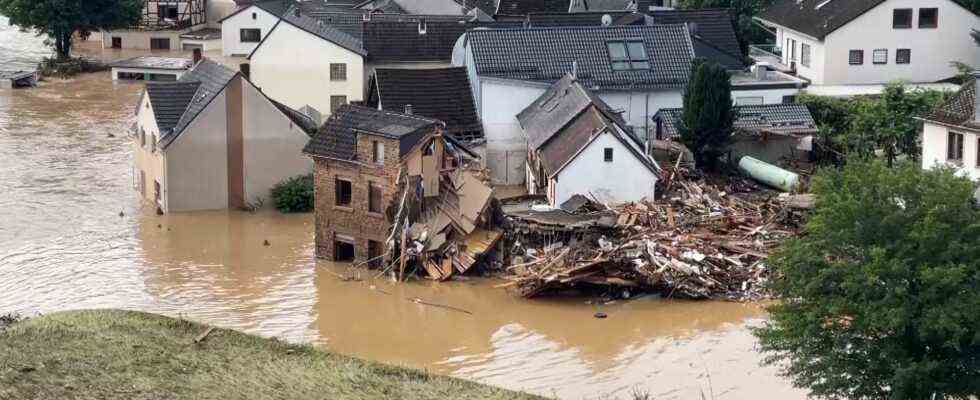interview
Status: 07/15/2021 11:51 a.m.
A wedged low, the soil saturated, the amount of precipitation too great: ARD meteorologist Eisenmann explains how the extraordinary storm came about. And why the damage is so great.
tagesschau.de: Mr. Eisenmann, what is happening here from a meteorological point of view?
Mark Eisenmann: The low “Bernd” transported very hot and extremely humid Mediterranean air from France towards northern and eastern Germany, while on the back of the low, cooler Atlantic air flowed towards south-western Germany. This mixed situation led to these rains and violent thunderstorms. The low stayed wedged between two highs and couldn’t move. The extensive heavy rain area formed enormous, extreme amounts of rain.
tagesschau.de: Why is there such massive damage?
Iron man: The amounts of rain are so enormous that they can no longer be absorbed by the rivers. The soils in this region are saturated. The ground can no longer absorb anything. This is also due to the past few weeks, in which it had rained heavily again and again. But above all it is simply due to the amount of wetness in the past few days. In these two days, more than 200 liters of rain per square meter were recorded in some places. Extreme values not previously achieved were reached. The effects are accordingly dramatic. Some streams and rivers have water levels that have never been reached before.
tagesschau.de: What role does sealing play in this?
Iron man: That certainly does its part. If the surface is more tightly sealed, the water can no longer seep away and flows directly into the sewer system. But nonetheless, such amounts of rain would cause problems even without heavier sealing and lead to this dramatic event. In this case, low mountain ranges are also affected, where we do not find such heavily sealed landscapes. The situation there is also catastrophic.
tagesschau.de: What conclusions do you draw from this?
Iron man: No conclusion can be drawn from this single event. But we can note an accumulation of such weather phenomena. These are basically all events of the century. And they are certainly also due to climate change. Warm air can absorb significantly more water vapor and thus rain out more water.
Tim Frühling, HR, with a severe weather forecast
Tagesschau 4:00 p.m., July 15, 2021
tagesschau.de: How is the situation developing?
Iron man: The showers and thunderstorms can occasionally bring large amounts of rain. But overall there should be no more extensive permanent rain areas.
Dietmar Telser asked the questions,
tagesschau.de
To person
Mark Eisenmann is a graduate metrologist at the ARD Weather Competence Center in Frankfurt. He was born in Esslingen am Neckar and studied meteorology in Karlsruhe. Since October 2004 he has been working as a meteorologist at Hessischer Rundfunk.

